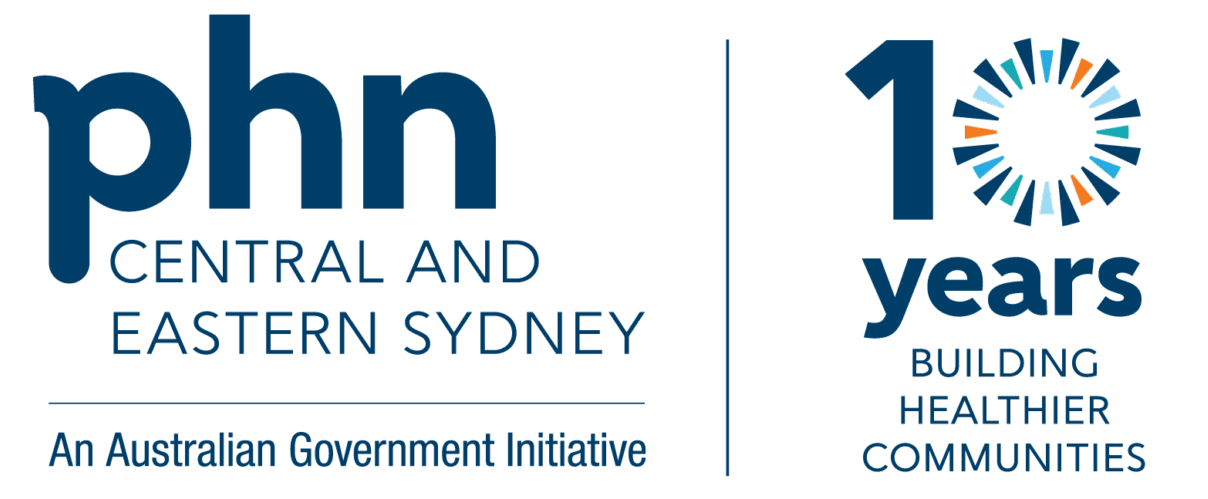ANSC June 2025 update: RPA Women and Babies/Canterbury Hospital
GP Shared Care Clinical Midwife Consultant maternity leave cover
The SLHD GP Shared Care Clinical Midwife Consultant, Melanie Tulloch, will be away on maternity leave until April 2026. Her role is being covered by Nicola Hart, Monday-Friday 8:30-4:30pm. Please continue to call the GP Liaison phone on 0425 230 662 during business hours. Alternatively, you can page the O&G registrar on-call through the hospital switchboard for urgent or after-hours advice.
Canterbury Hospital recruiting pregnant women for Produce Prescription Study
Canterbury Hospital has started recruiting pregnant women for the Produce Prescription Study. The study will look at whether providing pregnant women with free healthy food improves outcomes for women and their babies.
Women on the study receive $350 worth of grocery vouchers across their pregnancy and have a 50% chance of receiving weekly home-delivered healthy food boxes to supplement their usual groceries.
Eligible women need to be:
- booked in to Canterbury Hospital Antenatal Clinic prior to 15+5 weeks,
- considered high risk for developing gestational diabetes, and
- have difficulty accessing healthy food (due to finances, lack of transport, etc).
Interested eligible patients need to be referred to Canterbury for early booking, so that they can be screened for full eligibility for the study. For more information, please email rebecca.ryan2@health.nsw.gov.au.
RPA Virtual Hospital Hyperemesis Gravidarum Care
The RPA Virtual Midwifery offers personalised support and management for women with moderate to severe nausea and vomiting during pregnancy, reducing emergency department visits. Early referral to this service allows timely management to improve symptoms and quality of life.
In collaboration with Hospital in the Home (HITH) staff, women receive specialised care, including medication management, IV fluids, and access to dietetics, social work, and psychologists. Midwives provide virtual care through telehealth, follow-up calls, and digital surveys via the Go Share platform. GPs are encouraged to refer eligible women to the RPA Virtual Midwifery Service via Health Pathways.
Exclusions apply for those outside the Sydney Local Health District or not planning to birth at an SLHD facility. Click here for more information, or call RPA Virtual Midwives at 1800 325 065, option 3.
Electronic Referral Update: RPA Hospital Women and Babies Services
From 28 July 2025, GP referrals sent via fax and email will no longer be processed at RPA Women and Babies services (Maternity, Fertility, Gynaecology, EPAS and FMU). HealthLink Smartform eReferrals are now the primary mechanism for referral to over 85 services at Sydney Local Health District.
HealthLink Smartforms for RPA Women and Babies services are hosted within the Sydney LHD Women’s Health and RPAH Gastroenterology Services folder on the HealthLink Platform which can be accessed via GP practice software (Best Practice, Medical Director, Genie, ZedMed) or via the HealthLink Online Portal.
For more information on how to submit and update eReferrals, please refer to the HealthLink Smartform user guides.
If you require any support with eReferrals to SLHD, please contact the eReferral Project Team – SLHD-EReferralProject@health.nsw.gov.au or 0477 501 385.
Monthly online drop-in session with SLHD Clinical Midwife Consultants
First Thursday of every month at: 12:30-1:30pm (Teams link: Join the meeting now) 3:30-4:30pm (Teams link: Join the meeting now)
Dates for 2025:
There will be two online drop-in sessions held on the first Thursday of each month with Clinical Midwife Consultants from RPA and Canterbury Hospitals, including the GP Liaison Midwife. All GPs are welcome to attend.
This is not a formal education session, but rather an opportunity for GPs to drop in at any time during the hour to discuss any issues or questions they may have. The midwives are available to discuss any topics related to maternity care, including:
- Referrals
- Antenatal care options
- Early pregnancy care
- Genetic carrier screening and first trimester screening/NIPT
- Obtaining results or reports from the hospital
GPs are also welcome to call the Acting ANSC/GP Liaison CMC, Nicola Hart, at any time from Monday to Friday 8am-4:30pm on 0425 230 662. Genomics CMC, Elizabeth Austen, is also available Monday-Friday on 0448 333 516 to answer questions about early pregnancy screening. Please leave a voice message if they are unavailable, as calls are usually returned within a few hours.
Long-term health risks following Hypertensive Disorders of Pregnancy
Hypertensive disorders of pregnancy (HDP) include preeclampsia, gestational hypertension, and chronic hypertension and affect 5-10% of Australian pregnancies. As well as being a major cause of short-term maternal and fetal/neonatal illness, there is strong evidence that women after HDP have increased risk of chronic disease including cardiovascular disease, kidney disease and Type 2 diabetes [1-6].
Informed by prior research and co-designed with GPs and hospital healthcare providers [8, 9], targeted education and strategies to improve the handover-of-care between tertiary and primary care have been implemented across maternity services across Sydney Local Health District and South Eastern Sydney Local Health District.
At the Royal Prince Alfred Hospital, women who have experienced HDP will receive an HDP-specific discharge referral letter. This encourages women to see their GP regularly after their pregnancy. Follow-up recommendations with their GP is encouraged within 3 days from hospital discharge, and at 6 weeks and 6 months after birth unless otherwise indicated by their treating obstetrician or renal specialist
For more information, and an example of the post HDP specific discharge letter click here.
Rising Syphilis Rates in NSW: Why Early Screening Matters
Syphilis rates in NSW have hit a decade-high, with a sharp 700% rise among women over the past 10 years. In 2023, 14.7% of female cases involved pregnancies, resulting in four cases of congenital syphilis.
NSW Health has updated antenatal screening policies to include second-trimester testing (26–28 weeks) for all pregnant women and additional testing for high-risk groups. Early detection is crucial to preventing mother-to-child transmission.
General practitioners (GPs) play a vital role in syphilis detection and management. A RACGP-approved clinical audit (link to pdf SES LHD – Syphilis screening toolkit.pdf) (12-hour CPD activity – Educational Activities: 1 hour. Measuring outcomes: 11 hours) supports GPs in enhancing their practices to align with best-practice guidelines.
Learn more and access the course here.
For further details, refer to the NSW STI Data Report 2023.
Case Study – UTIs in Pregnancy
Jane is a 27 year old woman presenting for follow up after her antenatal bloods and dating scan. Jane’s antenatal screen was normal except the urine result, indicating bacteriuria. Jane is asymptomatic.
How do you interpret these results and what are the next management steps?
Click here for the full case study
Managing Non-Miscarriage Induced Early Pregnancy Pain and Bleeding for General Practitioners
Approximately 20–30% of pregnancies are affected by vaginal bleeding during the first trimester, and around 50% of these cases may result in miscarriage. Pain, typically lower abdominal discomfort, often accompanies bleeding and adds to the concern for both patients and practitioners. Miscarriage itself is a prevalent complication, occurring in about 10–25% of clinically recognized pregnancies. These statistics underscore the importance of equipping General Practitioners with the knowledge and skills to effectively manage these common yet distressing symptoms.
Click here for the complete case study, including a Management Plan and Clinical Pearls.
For further information on pain and bleeding in pregnancy, see:
- Sydney HealthPathways – Miscarriage and Ectopic Pregnancy
- Sydney HealthPathways – Early Pregnancy Assessment
- For clinical advice, contact the EPAS Clinical Midwife Consult on 0429 728 608, Monday to Friday 7:30am-4:00pm (GPs only – do not give number to patients) or page the on-call O&G Registrar through the hospital switchboard.




